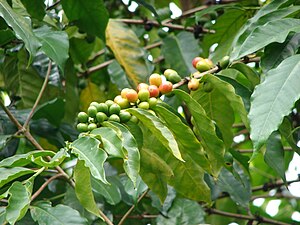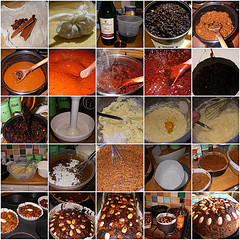
Image via Wikipedia
The birth place of coffee is relatively close to Kenya but getting it there was not an easy task and full of bloodshed. The Arabs who controlled coffee enslaved thousands of Kenyan’s where they worked on the coffee plantations in Kenya and Arabia. This was followed by the British settlers around 1900 who quickly assumed control over the country which led to more bloodshed.
In the first part of the 20th century the interior was settled by British and European farmers who became rich by farming coffee on the backs of the Kenyan workers. By the 1930’s the farmers powers had become very strong. Even with over 1 million Kikuyu tribe members calling it home they had now real land claims according to the Europeans. To protect their interest the wealthy Europeans banned them from growing coffee, introduced a hut tax and gave them less and less for their labor. The Kikuyu were forced to leave their land and go to the cities in order to survive. This legal slavery of the population continued until the century until the British relinquished control in 1960. Despite all this bloodshed and slavery Kenya coffee has flourished and is among one of the finest cups in the world.
All Kenya coffee grown is Arabica coffee grown on the rich volcanic soil that is found in the highlands of the country. Today around 250,000 Kenyans are employed in the production of coffee. Most is produced by small land holders that are members of cooperatives that process their own coffee. Still, even with this Kenya coffee’s specialty status Kenya coffee farmers still remain among the poorest in the world. In 2001 a farmer producing 1,007 kg crop would only earn £20.14 for his labor, that same coffee is available at specialty stores for $10 + per pound. [Read more…]

